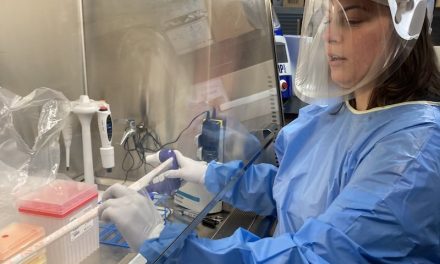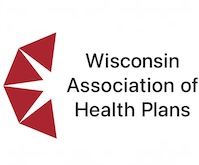
Marshfield Clinic genomic research helps build case for president’s Precision Medicine Initiative
MARSHFIELD – Marshfield Clinic’s effort over the past decade included the development of a database that allows providers to tailor health care to an individual’s precise genetic profile. This approach was an integral part in President Barack Obama’s new Precision Medicine Initiative.
Murray Brilliant, Ph.D., director for Marshfield Clinic’s Center for Human Genetics, was a guest at today’s White House announcement where the president shared how this bold new research effort will revolutionize how we improve health and treat disease. Obama first announced the initiative in his State of the Union address.
Precision medicine is an innovative approach to disease prevention and treatment that takes into account individual differences in people’s genes, environments and lifestyles. It gives clinicians tools to better understand complex mechanisms underlying a patient’s health, disease or condition and to better predict which treatments will be most effective.
The Precision Medicine Initiative objectives include:
- Accelerating biomedical discoveries.
- Investing in the design and testing of effective, tailored treatments for cancer.
- Creation of a voluntary national research cohort of 1 million people.
Brilliant oversees Marshfield Clinic’s Personalized Medicine Research Project. PMRP, created in 2001 that now has a database of more than 20,000 volunteers. PMRP is one of the largest population-based genetic research projects in the U.S.
The Clinic now uses information gained from years of PMRP studies to predict which patients will have adverse reactions to commonly prescribed anticoagulant and cholesterol-lowering medications based on their genetic make-up and medical history.
“PMRP was designed to understand genetic underpinnings of disease and we have now developed one of the first programs that demonstrated precision medicine works and is effective,” Brilliant said. “This method was researched and a pilot project, and is now in the implementation phase. We demonstrated this works in small groups and believe we are able to generalize this for all of our patients.”
One way patients benefited from the new implementation of precision medicine was through a study of genetic variation in genes associated with drug reactions.
Based on their medical records, patients who were likely to go on certain commonly prescribed anticoagulant and cholesterol-lowering medications were first tested for how they are likely to respond to the medication. Patients who are at risk for a bad reaction have an alert in their electronic health record that notifies their provider about a possible adverse reaction when a prescription for that drug is written and then an alternative therapy is recommended.
“We can look at their genetic variations, but also their clinical conditions and outcomes of care to develop precise, almost fingerprint-like uniqueness medical care for each individual based on genetic and other risk factors,” Brilliant said. “Employing precision medicine can insure that our patients get better health care with fewer bad outcomes.”
#####
The Marshfield Clinic system provides patient care, research and education with more than 50 locations in northern, central and western Wisconsin, making it one of the largest comprehensive medical systems in the United States.

























.jpg?bwg=1612548324)



